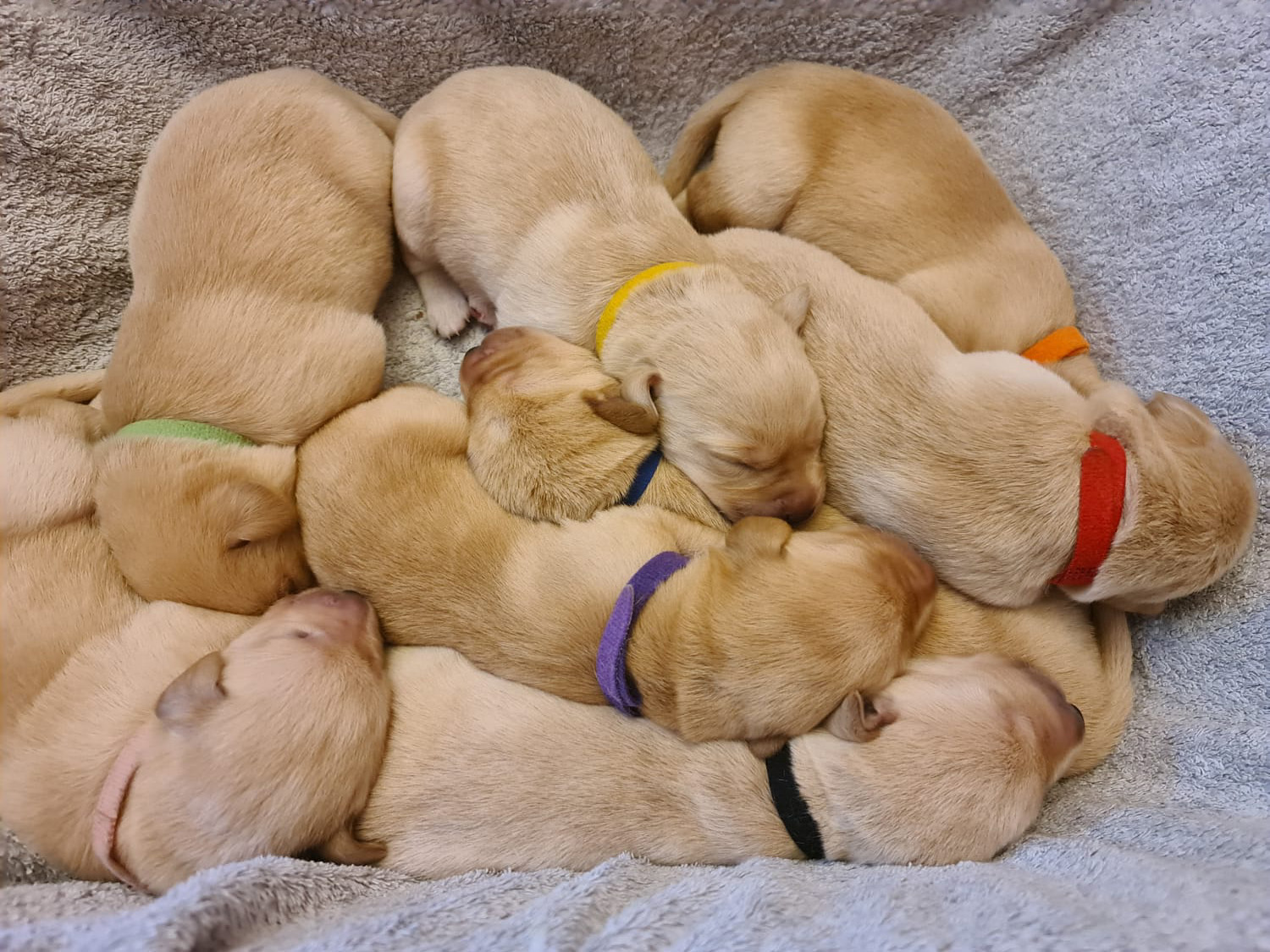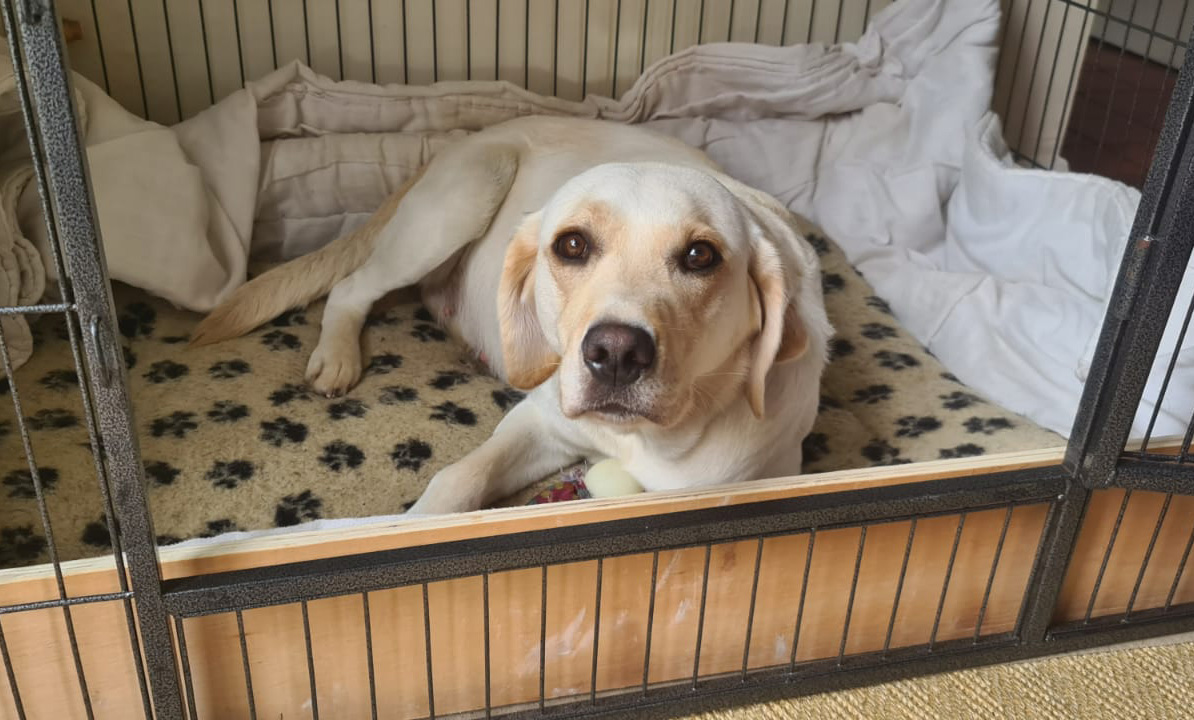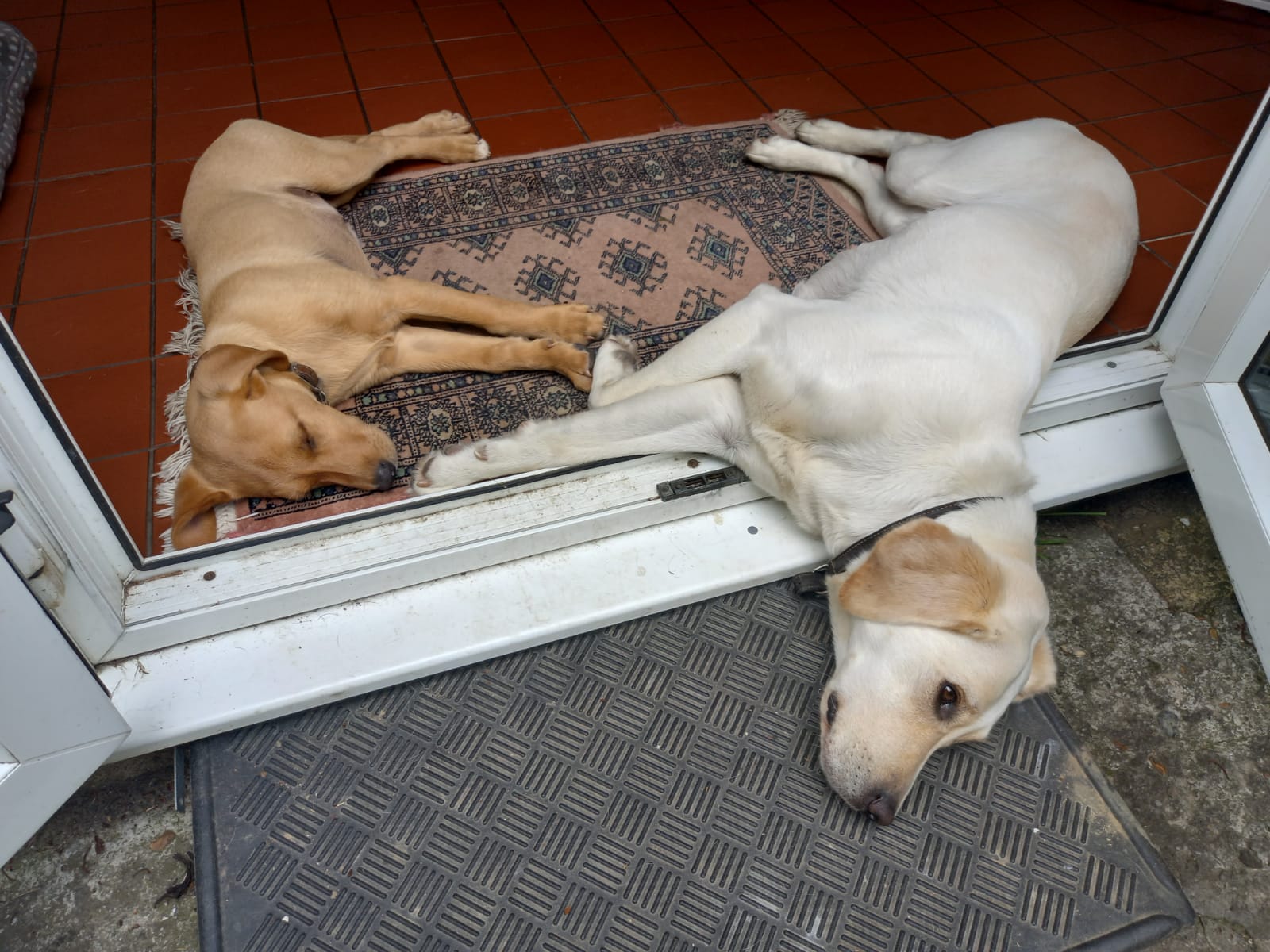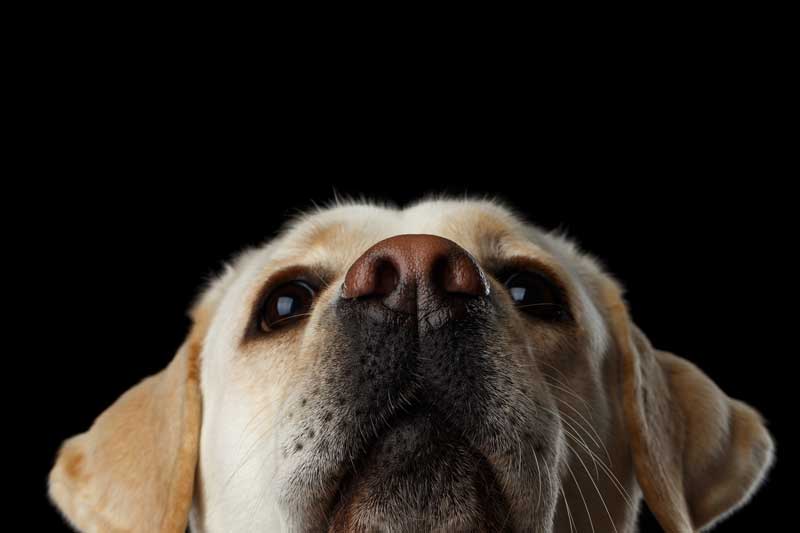1: The Neonatal stage 0-2 weeks
The window in this stage is from 0-2 weeks. Puppies are born deaf and blind, they are unable to regulate their own body temperature or eat solid food. During this window they are completely reliant on their mother for all their survival needs. Their ambulatory skills are also poor, but although they are unable to walk towards the end of this stage the can crawl quite efficiently, and seek out their mother and siblings displaying an inherent instinct to be part of a pack.
2: The Transitional period 2-3 weeks
A huge amount of physiological change occurs in this relatively short window. The eyes will begin to open periodically and their ears will open, as sight and hearing are part of the sensory nervous system it follows that huge amounts of development occur in the sensory nervous system. They start to see and hear and begin to become aware of their external environment.
Gillhambook puppies are always born inside the home. They are in a whelping box with mum 24/7 (apart from when she goes outside for toilet purposes) within a crate. They are kept in the main part of the house. Our other animals are encouraged to walk past them or lay beside supervised, and I conduct all my paperwork within that room at my table. The radio is on constantly as background music 24 hours a day. Our household routine remains unchanged. The hovering continues and our family and friends visit as they always do. This is the most effective way to desensitise the puppies to sight and sound in their external environment, and accept as normal other people and our other animals. No physical contact occurs at this stage apart from obviously their mother, my husband and I.

3: The socialisation period 3-12 weeks
During this window the 28 deciduous teeth erupt (baby teeth) and around the 8 week their fear responses start to develop. Personality starts to become more noticeable too. Experiences during this period are crucial and will shape their confidence for the rest of their lives and it is noteworthy to mention that they will be in their forever homes by the end of this period, so this is where you as the new owner take control of their learning windows. They begin to develop bowel and bladder control and some breeders including us begin to potty train them between 5 and 6 weeks. They will learn to walk in the early stages of this window and will also find their bark ! . They will be able to eat semisolid food and may be weaned during this stage. This socialisation period has 2 stages within it.
Primary socialisation 3-5 weeks and Human socialisation 3-10 weeks
Within the primary socialisation stage important lessons and skills are taught by the mother and the litter mates as they become aware of their external environment. Certain key skills such as bite inhibition, social order and respect and submission are learned. It is important when considering a buying a puppy that a puppy kept in social isolation or offered before the age of 8 weeks will not have developed these skills.
Human socialisation should be carefully encouraged, with positive outcomes. They should be encouraged to meet other people outside of the home environment including adults and children. In addition certain types of clothing and accessories such as hats umbrellas, pushchairs bikes can be worn used or introduced without a big fuss being made. Different surfaces such as wood, grass carpet. Car trips should be short and frequent and trips to the vet made as positive as possible. If the surgery is local a weekly trip down to put puppy on the scales is a good way to encourage this or some surgeries hold puppy parties which can be helpful. All the interactions that occur in this stage will determine the basic character and temperament. Missing this window to maximize interactions will leave you as his owner with many potential set backs and behavioural issues.
4: The Juvenile period 12 weeks to adolescence
During this window the puppy’ senses have fully developed and the 28 deciduous teeth begin to be replaced with the permanent teeth that will total 46 between 4to 6 months. Their growth rate will start to slow, although this breed will not be considered fully grown until around the age of 24 months. During this stage they need careful attention and thoughtful exercise in order to keep their joints safe as the growth plates between the bones are still open. They will be playful and it is a good opportunity to encourage more focussed training in short bouts little and often using positive reinforcement, using calm controlled and consistent commands, whilst keeping puppy focussed on you rather than distractions. This can be successfully achieved with periodical treat rewards and plenty of praise. This period is an ongoing learning process, during which you shouls continue with training while strengthening your bond. All training must become a habit otherwise it will be forgotten.
5: The adolescent stage
This stage is normally between 6-18months of age. During this stage they can tend to become rebellious however with the training and socialisation that they have received during the previous stages they should be manageable. Adequate exercise allows for the burning off of excess exuberant energy. During this stage puppies will reach sexual maturity and neutering may be considered in this stage.
The Fear Imprint Periods 8-11weeks and 6-14months
These 2 periods are quite typical. This can occur due to the huge amount of uncertainty within the dog’s impression of the world. They do not understand certain things or situations so instinctually there nervous system becomes temporarily overloaded, as they may interpret threats. These periods will pass, but while they happen it is very important not to react either negatively or overly with reassurance in the form of praise, as this can reinforce the fear. The most effective approach is a calm and consistent attitude while relying upon your basic training /set of commands which the dogs should be well established in if the fear period is in the latter stages of development. Careful continued exposure to the stimulus is usually the best way forward until these fear periods diminish.



